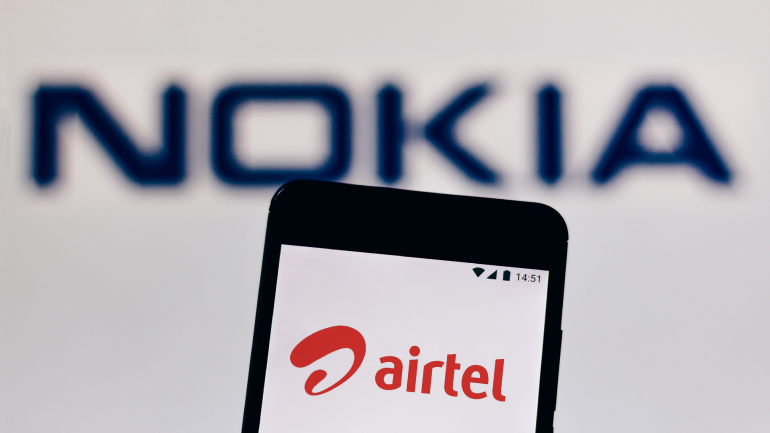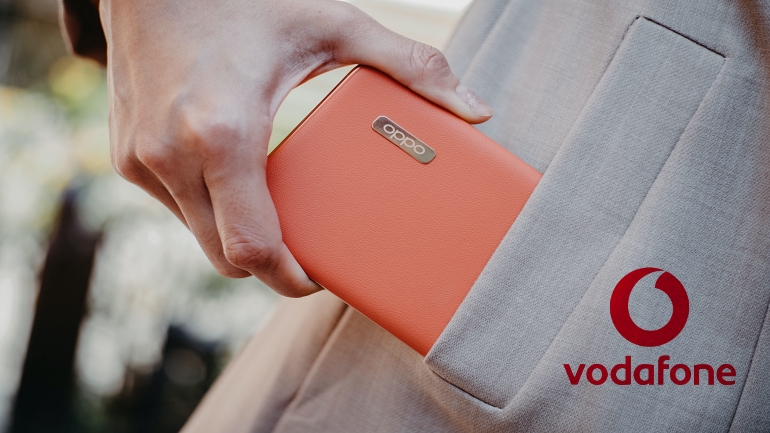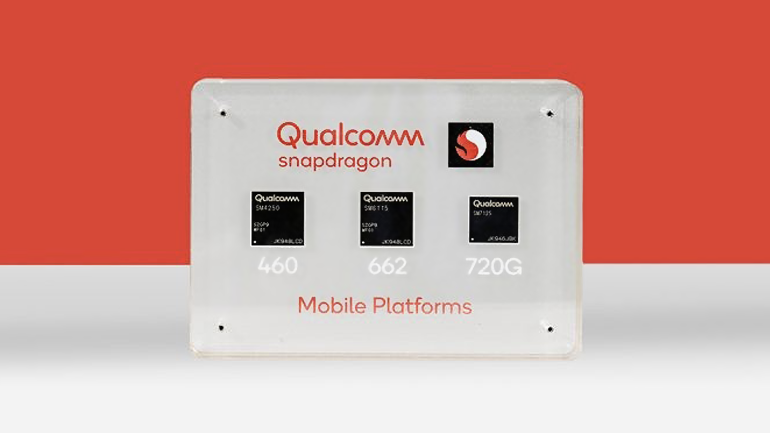The French telecommunications provider Iliad, that provides fixed and mobile telephony services, prepaid phone cards, Internet access and hosting services, has signed a new $356 million loan deal with the European Investment Bank (EIB) to help the Iliad Group finance its mobile network deployment in France, in particular to consolidate its 4G network and deploy its 5G network. Since 2009, the EIB has financed Iliad, and with this new loan the total financing exceeds $1.3 billion. Having helped finance the development of the Iliad fixed network for more than a decade, the EIB is once again working with the group to provide financial support for the company’s latest generation of mobile networks. There was little information on what exactly the latest loan would be used for, but Iliad said it is devoted to providing digital coverage to the whole of France, including most rural areas. Ambroise Fayolle, Vice-President…
8×8 partners up with Pax8 8×8, the provider of a leading integrated cloud communications platform, announced that Pax8, a cloud solutions platform, has become a strategic partner and has joined the 8×8 Open Channel Program. In accordance with the agreement, Pax8 is now offering their US partners an 8×8 Open Communications Platform that combines voice, team chat, meetings and a contact center in one solution, allowing organizations to move to the cloud. According to Pax8, the two companies will work together to support their partners as they help customers accelerate their digital transformation efforts, ensure business resilience, and improve employee experience and engagement. Read more at: https://tinyurl.com/y3xg4fu4 Telefónica aims at partnership with Allianz According to Spanish media reports, the telecommunications giant Telefonica is seeking to partner with a private equity subsidiary of the German insurance company Allianz, to launch a fiber-optic joint venture worth about $5.8 billion. The joint venture,…
Germany to retire its 3G network Deutsche Telekom, Telefonica Deutschland and Vodafone Germany have announced the dates of their 3G network service withdrawal. Deutsche Telekom announced that it will aim to shut down 3G networks by the summer of 2021, while the Vodafone Germany target date was announced to be a few months earlier. Similarly, Telefonica Deutschland has stated that it would like to switch off its 3G technology by the end of 2021. This means that Germany will be essentially dependent on LTE and 5G in just over a year. Deutsche Telekom says the coverage gaps left after the 3G shutdown will be filled by 4G. Read more at: https://tinyurl.com/y48ot9p5 Rogers Communications expanding 5G services On September 22, the Canadian communications and media company Rogers Communications announced the launch of 5G technology in five new cities. The Ericsson-powered operator has the largest 5G network in Canada. According to the…
Ribbon announces hybrid slicing for 5G Ribbon Communications, a provider of real time IP-based communications and software solutions, announced that it has partnered with Xilinx Inc. to develop a 5G hybrid slicing solution for next-generation networks. Slicing is important in 5G, as it enables the separate 5G integral service classes. Hard slicing is necessary to meet the strict requirements for availability, bandwidth and security of highly sensitive services, while soft slicing provides benign insulation for services with a lower critical limit value. Ribbon will highlight its 5G solutions, including hybrid slicing, during its 5G Perspectives virtual event on September 14, 2020. Read more at: https://tinyurl.com/y6tm8bqa Oi sells its mobile assets to Claro, Telefónica and TIM Three operators, Claro, Telefónica and TIM, formerly known as Telecom Italia, have won the bid for the Brazilian operator Oi’s mobile assets valued at more than $3 billion. In the past, these operators had a…
The Indian telecom giant Bharti Airtel has selected Nokia’s CloudBand-based software products to power its Voice over LTE (VoLTE) network. Nokia stated that this network supports more than 110 million customers, making it the largest cloud-based VoLTE network in India and the world’s largest VoLTE service managed by Nokia. According to the Finnish telecom gear maker, the deployment of cloud-based VoLTE will enable Airtel to provide its mobile customers with faster, more reliable and cost-effective call connectivity. Nokia’s solution, which has been deployed to cover all 22 telecom service areas in India, uses commercial, off-the-shelf IT hardware with cloud-based Virtual Network Functions (VNFs). Nokia noted that cloud-native VNFs consume far less power and space compared to traditional 2G or 3G circuit-switched legacy cores. With Nokia’s VoLTE platform, Airtel will be able to reduce its 3G network traffic and use the freed-up spectrum to deploy 4G / LTE services for higher speeds…
The Chinese tech company OPPO, currently the second-largest smartphone manufacturer in its home country after Huawei, has announced a comprehensive partnership agreement with the UK-based telecom giant Vodafone. Under the deal, Vodafone will become an OPPO partner and bring its full-range of 4G and 5G smartphones to retail and online channels in Germany, the United Kingdom, Spain, Portugal, Romania, Turkey and the Netherlands. According to the announcement, the collaboration between the two companies will give customers more choice and accelerate 5G adoption in Vodafone’s international markets. Driven by strong growth ambitions, an innovative product portfolio and advanced 5G technology expertise, the leading Chinese smartphone brand has been very successful in its domestic market. With annual handset shipments of more than 100 million units, OPPO believes that it is “a natural partner for Vodafone’s leading gigabit network”. Alen Wu, Vice President and President of Global Sales at OPPO, said, “OPPO…
The Global mobile Suppliers Association (GSA), a non-profit industry organization representing mobile industry suppliers worldwide, has expanded its membership by welcoming nine new companies from the global 4G and 5G mobile ecosystem. The GSA said that it has so far accepted Approve-IT as a new ordinary member together with eight new associate members, including the French telecom regulator ARCEP and the Singaporean regulator IMDA. In March 2020, the association also extended its Executive Committee by adding ZTE as an executive member along with Ericsson, Huawei, Intel, Nokia, Qualcomm and Samsung. Joe Barrett, the President of the GSA, said, “The global mobile industry is not only highly competitive, it’s also highly collaborative. 5G doesn’t belong to one company or country; there is a whole ecosystem of regulators, vendors and operators who are working together to drive global harmonization of spectrum, innovation in networks and devices, and new use cases for 5G…
Work from home: Can the telecoms industry take the strain? Many businesses opt for remote working due to the ongoing coronavirus crisis, and this has led to a dramatic increase in the use of online services. The additional pressure is proving problematic for the telecoms industry in Spain, which has reported a 40 percent increase in data consumption and a 50 percent increase in mobile phone usage. Movistar (Telefonica), Orange, Vodafone, Masmovil, and Euskaltel have issued a joint statement in anticipation of the national lockdown, urging customers to take “intelligent and responsible use of the network and the resources it provides us.” Meanwhile, BT, the UK’s largest telecom provider, said that its network can handle it. Read more at https://tinyurl.com/sm8bms7 Vodafone unveils five-point plan to combat COVID-19 Vodafone has put forward a five-point plan to maintain network services and assist governments across Europe in controlling the outbreak of coronavirus. The five…
The next-generation wireless technology for digital cellular networks is steadily gaining traction, with significant implementations under way. All of the major carriers are rolling out their 5G networks, targeting large cities that crave super speeds, virtually lag-free connections, extended coverage and other great benefits that are made available by this advanced technology. 5G has already been launched in many different locations around the world, but it is still considered to be in its initial stages. All of the US carriers have now launched some form of 5G cellular network. But what exactly is 5G, how fast is it compared with 4G, what will it bring to VoIP applications, and what are the benefits and drawbacks of this innovative technology? Let’s take a look at 5G in more detail. What is 5G? 5G stands for fifth-generation cellular wireless and is the next generation of telecom networks that entered the…
Even though fifth generation mobile communications technology is set to go mainstream, 4G, also known as LTE, isn’t going away any time soon. With this in mind, it is not surprising that manufacturers of telecom equipment continue to develop 4G-focused smartphone processors. US-based Qualcomm Technologies has launched three new Snapdragon mobile platforms aimed at 4G smartphone manufacturing companies. The Qualcomm Snapdragon 720G, 662 and 460 chipsets have been created to enhance user experiences across connectivity, gaming and entertainment applications. In a statement, the company said that these new mobile platforms provide high-speed 4G connectivity, deliver key Wi-Fi 6 features and integrated Bluetooth 5.1 with advanced audio via the Qualcomm FastConnect 6-series subsystems, support Dual-Frequency (L1 and L5) GNSS to improve location positioning accuracy and reliability, and are the first system-on-chip products to support Navigation with Indian Constellation (NavIC) satellite positioning system. Qualcomm said the new Snapdragon platforms also…













